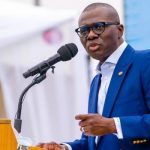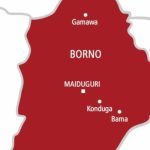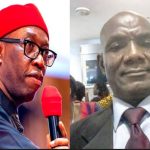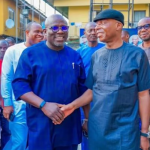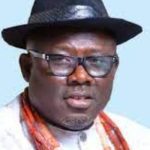Seven countries of the Community of East African States (EAC) have agreed to extend the mandate of their force deployed in the east of the Democratic Republic of Congo (DRC) in an attempt to bring peace to the region.
This was announced in a communique following a summit in Nairobi, Kenya.
In November 2022, a force of several thousand soldiers was sent in eastern DRC, an area that had been beset by violence from dozens of armed groups and rebellions for nearly 30 years.
Its focus has shifted to the M23 rebels’ operating regions north and northwest of Goma, the capital of North Kivu.
The survival of this force had been thrown into question following criticism from DRC President Felix Tshisekedi, but the EAC resolved to extend its term by three months in June.
Since resuming operations in North Kivu at the end of 2021, the Tutsi-led M23 has taken vast swaths of land.
The EAC force has retaken certain areas previously held by the M23, but has yet to put an end to the insurgency.
The DRC has accused neighboring EAC member Rwanda of assisting the insurgents, which Kigali denies.
Seven countries of the Community of East African States (EAC) have agreed to extend the mandate of their force deployed in the east of the Democratic Republic of Congo (DRC) in an attempt to bring peace to the region.
This was announced in a communique following a summit in Nairobi, Kenya.
In November 2022, a force of several thousand soldiers was sent in eastern DRC, an area that had been beset by violence from dozens of armed groups and rebellions for nearly 30 years.
Its focus has shifted to the M23 rebels’ operating regions north and northwest of Goma, the capital of North Kivu.
The survival of this force had been thrown into question following criticism from DRC President Felix Tshisekedi, but the EAC resolved to extend its term by three months in June.
Since resuming operations in North Kivu at the end of 2021, the Tutsi-led M23 has taken vast swaths of land.
The EAC force has retaken certain areas previously held by the M23, but has yet to put an end to the insurgency.
The DRC has accused neighboring EAC member Rwanda of assisting the insurgents, which Kigali denies.
Seven countries of the Community of East African States (EAC) have agreed to extend the mandate of their force deployed in the east of the Democratic Republic of Congo (DRC) in an attempt to bring peace to the region.
This was announced in a communique following a summit in Nairobi, Kenya.
In November 2022, a force of several thousand soldiers was sent in eastern DRC, an area that had been beset by violence from dozens of armed groups and rebellions for nearly 30 years.
Its focus has shifted to the M23 rebels’ operating regions north and northwest of Goma, the capital of North Kivu.
The survival of this force had been thrown into question following criticism from DRC President Felix Tshisekedi, but the EAC resolved to extend its term by three months in June.
Since resuming operations in North Kivu at the end of 2021, the Tutsi-led M23 has taken vast swaths of land.
The EAC force has retaken certain areas previously held by the M23, but has yet to put an end to the insurgency.
The DRC has accused neighboring EAC member Rwanda of assisting the insurgents, which Kigali denies.
Seven countries of the Community of East African States (EAC) have agreed to extend the mandate of their force deployed in the east of the Democratic Republic of Congo (DRC) in an attempt to bring peace to the region.
This was announced in a communique following a summit in Nairobi, Kenya.
In November 2022, a force of several thousand soldiers was sent in eastern DRC, an area that had been beset by violence from dozens of armed groups and rebellions for nearly 30 years.
Its focus has shifted to the M23 rebels’ operating regions north and northwest of Goma, the capital of North Kivu.
The survival of this force had been thrown into question following criticism from DRC President Felix Tshisekedi, but the EAC resolved to extend its term by three months in June.
Since resuming operations in North Kivu at the end of 2021, the Tutsi-led M23 has taken vast swaths of land.
The EAC force has retaken certain areas previously held by the M23, but has yet to put an end to the insurgency.
The DRC has accused neighboring EAC member Rwanda of assisting the insurgents, which Kigali denies.
Seven countries of the Community of East African States (EAC) have agreed to extend the mandate of their force deployed in the east of the Democratic Republic of Congo (DRC) in an attempt to bring peace to the region.
This was announced in a communique following a summit in Nairobi, Kenya.
In November 2022, a force of several thousand soldiers was sent in eastern DRC, an area that had been beset by violence from dozens of armed groups and rebellions for nearly 30 years.
Its focus has shifted to the M23 rebels’ operating regions north and northwest of Goma, the capital of North Kivu.
The survival of this force had been thrown into question following criticism from DRC President Felix Tshisekedi, but the EAC resolved to extend its term by three months in June.
Since resuming operations in North Kivu at the end of 2021, the Tutsi-led M23 has taken vast swaths of land.
The EAC force has retaken certain areas previously held by the M23, but has yet to put an end to the insurgency.
The DRC has accused neighboring EAC member Rwanda of assisting the insurgents, which Kigali denies.
Seven countries of the Community of East African States (EAC) have agreed to extend the mandate of their force deployed in the east of the Democratic Republic of Congo (DRC) in an attempt to bring peace to the region.
This was announced in a communique following a summit in Nairobi, Kenya.
In November 2022, a force of several thousand soldiers was sent in eastern DRC, an area that had been beset by violence from dozens of armed groups and rebellions for nearly 30 years.
Its focus has shifted to the M23 rebels’ operating regions north and northwest of Goma, the capital of North Kivu.
The survival of this force had been thrown into question following criticism from DRC President Felix Tshisekedi, but the EAC resolved to extend its term by three months in June.
Since resuming operations in North Kivu at the end of 2021, the Tutsi-led M23 has taken vast swaths of land.
The EAC force has retaken certain areas previously held by the M23, but has yet to put an end to the insurgency.
The DRC has accused neighboring EAC member Rwanda of assisting the insurgents, which Kigali denies.
Seven countries of the Community of East African States (EAC) have agreed to extend the mandate of their force deployed in the east of the Democratic Republic of Congo (DRC) in an attempt to bring peace to the region.
This was announced in a communique following a summit in Nairobi, Kenya.
In November 2022, a force of several thousand soldiers was sent in eastern DRC, an area that had been beset by violence from dozens of armed groups and rebellions for nearly 30 years.
Its focus has shifted to the M23 rebels’ operating regions north and northwest of Goma, the capital of North Kivu.
The survival of this force had been thrown into question following criticism from DRC President Felix Tshisekedi, but the EAC resolved to extend its term by three months in June.
Since resuming operations in North Kivu at the end of 2021, the Tutsi-led M23 has taken vast swaths of land.
The EAC force has retaken certain areas previously held by the M23, but has yet to put an end to the insurgency.
The DRC has accused neighboring EAC member Rwanda of assisting the insurgents, which Kigali denies.
Seven countries of the Community of East African States (EAC) have agreed to extend the mandate of their force deployed in the east of the Democratic Republic of Congo (DRC) in an attempt to bring peace to the region.
This was announced in a communique following a summit in Nairobi, Kenya.
In November 2022, a force of several thousand soldiers was sent in eastern DRC, an area that had been beset by violence from dozens of armed groups and rebellions for nearly 30 years.
Its focus has shifted to the M23 rebels’ operating regions north and northwest of Goma, the capital of North Kivu.
The survival of this force had been thrown into question following criticism from DRC President Felix Tshisekedi, but the EAC resolved to extend its term by three months in June.
Since resuming operations in North Kivu at the end of 2021, the Tutsi-led M23 has taken vast swaths of land.
The EAC force has retaken certain areas previously held by the M23, but has yet to put an end to the insurgency.
The DRC has accused neighboring EAC member Rwanda of assisting the insurgents, which Kigali denies.






